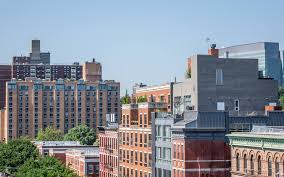By Hellen Zaboulani
As per Crain’s NY, the City put out a request for proposals (RFP) on Friday for work at the two neighborhood sites on Fulton Street. The upcoming development will be part of Bedford-Stuyvesant Housing Plan which hopes to advance a health-centered vision for new affordable housing and protect local homeowners and tenants against displacement. The plan also includes building community health and wellness facilities. The two local projects under the Bedford-Stuyvesant Community Wealth and Wellness Request for Proposals will be required to incorporate a “hub of uses” with programming, and building designs that promote community wellness through healthy eating, living, physical exercise, and holistic healing. Sites may also include multi-purpose community centers.
As reported by Real Estate Weekly, this will be the first time the City’s new equitable ownership requirement will be put to work. The initiative aims to strengthen the role of Minority-and-Women-Owned Business Enterprises (M/WBE ) as well as non-profit businesses used to build affordable housing projects developed on City-owned sites. The new requirement, mandates that no less than 25 percent of the project’s managing ownership interests must be held by a M/WBE or non-profit development partners, entitling them to at least 25 percent of the total economic benefits of the project, net any tax credit limited partner interests.
“This housing plan builds on Bed-Stuy’s rich history at the forefront of the community development movement with local leaders and residents working together to protect their neighborhood from the forces of racism and economic instability,” said HPD Commissioner Louise Carroll. “Developed through an inclusive, community-driven process, the plan reflects priorities of the Bed-Stuy community, including creating affordable housing, protecting residents from displacement, and promoting equitable ownership among M/WBE and nonprofit developers.”
Following months of research, the city plan will also work to connect more homeowners to resources and counseling regarding estate planning, educating the community that short-term rentals such as Airbnb are illegal, and helping elders to avoid becoming victim to predatory and illegal solicitations to sell below market value. The plan hopes to combat the neighborhood’s prevalent rising housing costs, gentrification and widening racial wealth gap by building more integrated, equitable, and inclusive neighborhoods.





